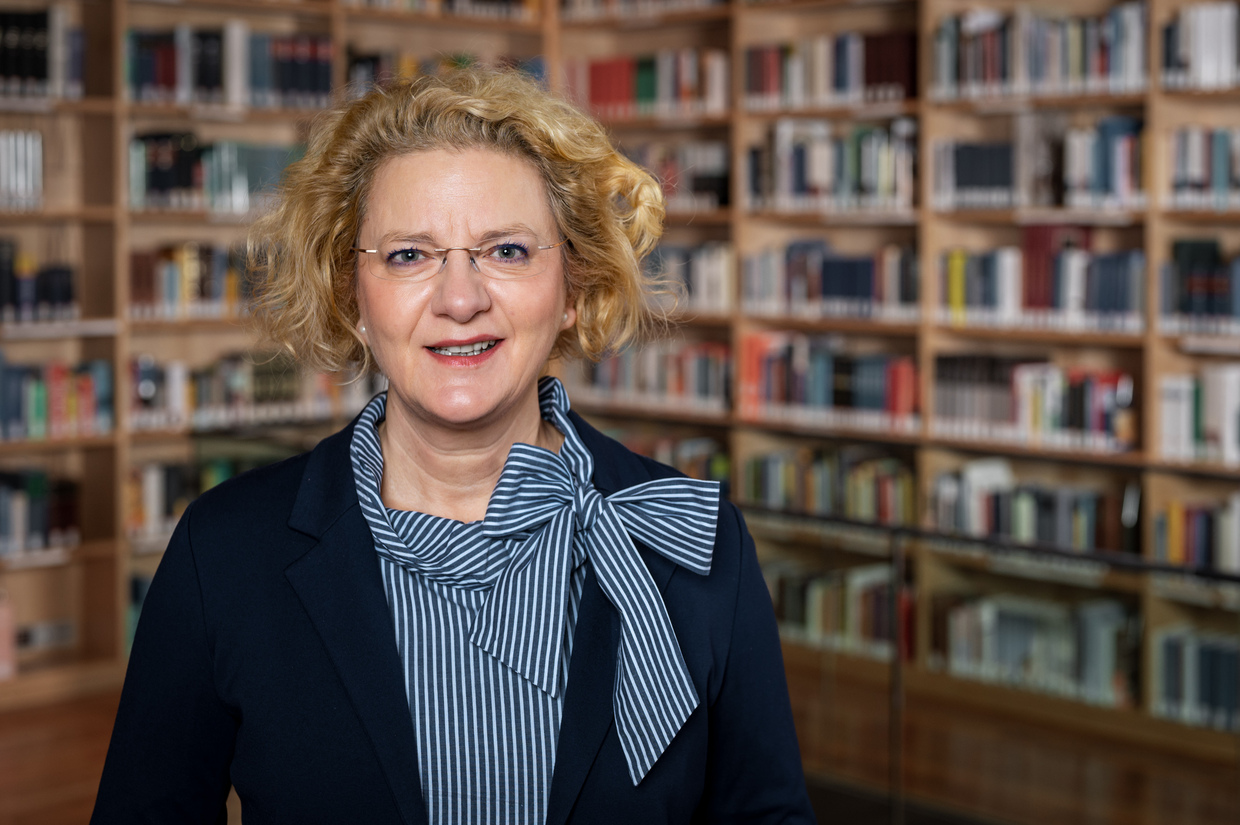Alumna in portrait: Dr. Annette Ludwig

Dr. Annette Ludwig studied art history, architectural history and modern German literature at the University of Karlsruhe (TH). She has been Director of the museums of the Klassik Stiftung Weimar since 2022 and is responsible for 21 museums and their collections. Together with her team, she is responsible for all museum matters relating to the Klassik Stiftung Weimar's major infrastructure projects, which include the renovation of the Residenzschloss, the restoration of the Goethe Residence ensemble in keeping with its listed status and the new museum concept, and the new building for the important graphic art collections. The full member of the European Academy of Sciences and Arts (Salzburg) is active on numerous advisory boards, boards of trustees, committees and juries. Since 2008, Ludwig has been a lecturer at the Center for Applied Cultural Studies and Studium Generale (ZAK) of the KIT, now Forum, and since 2024 at the Institute for Art History at the University of Bern (Switzerland).
What valuable experiences and insights from your studies still shape you today?
"Art history under the primacy of technology" was the title of Prof. Dr. Klaus Lankheit's rectorate speech in 1965, with which the art historian also referred to the beginnings of the small subject at the Karlsruhe University of Technology - and thus also to the differences to university teaching, which still manifest themselves in my student days in the 1980s and ultimately to this day. The overview lectures and the focus on architectural history, on the built environment, were just as formative for me as the reference to practice in the form of exercises in front of originals in local museums, the immersion in contemporary art through studio visits, artist talks or my own first experiences with cultural policy, exhibiting, public presentation and mediation of art. The "staffing ratio" at the art history institute, i.e. small seminars and intensive supervision by the (exclusively male) professors, was very valuable in this respect. This environment not only formed the basis for specialist knowledge, art theory, methodology and aesthetic education, but also for enriching encounters and friendships, passion and an enthusiasm for the subject that I would study again and again. That's why I've also been involved as a lecturer at KIT since 2008 and try to give back and be the inspiring, encouraging mentor I wish I had been as a student.
What added value do you get from being a member of the alumni network?
The exchange with alumni from different professions, backgrounds and areas of experience is a wonderful opportunity to get to know and bring together different national and international perspectives. It offers space for professional dialog, for the discussion of relevant topics or challenges and future orientation, for example through (research) cooperations, because networks, but also role models, sustainable relationships and friendships are essential, especially in leadership positions.
What is your vision for KIT?
KIT should empower lifelong learning in a rapidly transforming society, take away the fear of risk and responsibility, promote dynamism, optimism, personal "growth", structural innovations, excellence and innovation; in short, claim a pioneering position, also and especially in the humanities, which must be made more visible and strengthened. Inter- and transdisciplinarity as well as a research-driven, value-based and appreciative culture make a significant contribution to strengthening our eroding democracy - and thus to preserving a world worth living in for future generations, in which the focus on humanity is not lost. Because education is the future.
